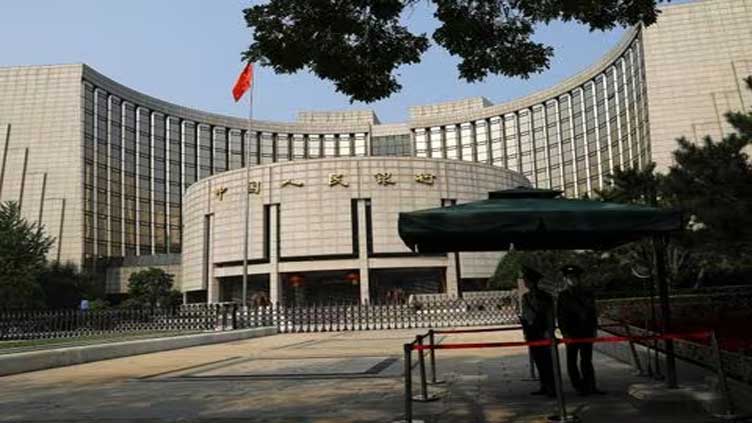China Nov bank loans rise less than expected

Business
China Nov bank loans rise less than expected
BEIJING (Reuters) - New bank lending in China jumped less than expected in November, even as the central bank keeps policy accommodative to support a feeble recovery in the world's second-largest economy.
The People's Bank of China (PBOC) is expected to deliver more modest policy easing in the coming weeks, following a pledge this week by top leaders to step up policy adjustments to support the economic recovery in 2024, analysts said.
Chinese banks extended 1.09 trillion yuan ($151.73 billion) in new yuan loans in November, up from October's 738.4 billion yuan but missing analysts' expectations, according to data released by PBOC on Wednesday.
Last November, banks issued 1.21 trillion yuan in new loans.
Analysts polled by Reuters had predicted new loans would rise to 1.3 billion yuan in November, amid expectations of front-loading by lenders.
"Broad credit growth continued to rise in November thanks to a pick-up in government bond issuance, but it still came in below expectations," Capital Economics said in a note.
"We think further policy support is on the way, but this is unlikely to drive a substantial acceleration in credit growth."
The PBOC has told several banks to bring forward some of the loans they plan to extend in early 2024 to late this year and to not overdo lending in the first quarter, sources said last month.
Household loans, including mortgages, grew by 292.5 billion yuan in November, after contracting by 34.6 billion yuan in October. Weak consumer confidence, fuelled in part by a deepening property crisis and high unemployment, has weighed heavily on the economy this year.
Corporate loans rose to 822.1 billion yuan from 516.3 billion yuan in October.
"There is still some room for cutting the reserve requirement ratio and interest rates to help maintain stable liquidity in the banking system and promote reductions in financing costs," Wen Bin, chief economist at Minsheng Bank, said in a note.
POLICY PLEDGE
Central bank chief Pan Gongsheng has pledged to keep monetary policy accommodative to support the post-pandemic recovery but also urged structural reforms to reduce reliance on infrastructure and property for growth.
The Politburo, a top decision-making body of the ruling Communist Party, said on Friday that fiscal policy would be moderately strengthened and will be "flexible, moderate, precise, and effective" to help spur the economic recovery.
As part of support measures, the PBOC has cut interest rates on some loans and pumped out more cash in recent months, in contrast to other major economies that have tightened policy to tackle inflation.
In September, the PBOC cut banks' reserve requirement ratio for the second time this year, and analysts expect another cut in the coming weeks.
Broad M2 money supply rose 10.0% from a year earlier, central bank data showed, missing analyst forecasts for 10.1% growth in the Reuters poll, and compared with 10.3% in October.
Outstanding yuan loans grew 10.8% in November from a year earlier compared with 10.9% growth in October. Analysts had expected an 11% increase.
Annual growth of outstanding total social financing (TSF), a broad measure of credit and liquidity in the economy, quickened to 9.4% in November from 9.3% in October.
TSF includes off-balance sheet forms of financing that exist outside the conventional bank lending system, such as initial public offerings, loans from trust companies, and bond sales.
In November, TSF fell to 2.45 trillion yuan from 1.85 trillion yuan in October. Analysts polled by Reuters had expected November TSF of 2.6 trillion yuan.


